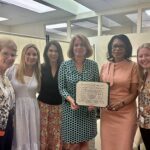From Anton Media, Feb.7, 2018
Remembering without awareness is a phrase I really like. It suggests the retrieval of a memory that escapes conscious awareness.
Recently, I passed the 20-year mark without either parent, and many more years without grandparents. One grandmother, Annie, died before I was born. I was named after her. The other, Jenny, died when I was too young to remember her. My grandfathers, Harry and Joseph, died a few years later, still during my childhood years, but I have memories of both of them.
Each had disabilities and prostheses. Both of Grandpa Harry’s legs were amputated as the result of diabetes. Grandpa Joe lost his eye as the result of a carpentry accident. Their disabilities were never hidden from me. I went with my dad and Grandpa Harry when he had his prosthetic legs fitted. Grandpa Joe regularly took his eye out and showed it to me on request. I used to wonder if I would have artificial parts when I got older.
In my first year of graduate school in 1976, I was assigned to intern in a program called “Aged in Distress.” It was a crisis intervention program for older people. I made home visits to people with physical and mental disabilities, as well as one woman who was bedridden and terminally ill.
Although my primary interest in becoming a social worker was to work with children and teenagers, I was surprised at how much I liked working with older people. I was 25 at the time. Thinking back, it shouldn’t have come as such a surprise to me. Sometime after the internship, I realized that I was remembering without awareness the short time I had with my grandfathers.
Now I know that my early memories and recollections, whether I am consciously aware of them or not, influence how I feel about and relate to others in the present. As a child who experienced my grandfathers’ lives and deaths, I wasn’t conscious of the fact back then that one day I would be dealing with my parents’ aging, illnesses and deaths.
My father had cancer and my mother had heart and kidney problems. I traveled often from my home on Long Island to New Jersey to help care for them, some of that time at the same hospital in Newark where I was born in 1951.
One memorable evening—which also happens to have involved artificial body parts—was the time my mother fell and was taken to the hospital. She called me at 2 a.m. and said, “Andy, will you bring my Polident to the hospital?” Broken arm and bruised face, all she could think about was what she needed to keep her dentures in place so that she would look good.
I took the 90-minute drive from Long Beach to Newark at 2:30 am, retrieved her tooth powder from the medicine cabinet in her home, headed to Beth Israel hospital, spent a few hours with her and drove back to Long Island with enough time to make it to my office for work.
Although the trip was inconvenient, I was aware all along that one good turn deserves another. Both my mother and father took time caring for their parents when they aged while also caring for me and my brother. It is these kinds of life lessons that seep into your unconscious and define the person you become, with many generations to thank.
By Andrew Malekoff, Executive Director of North Shore Child & Family Guidance Center, which provides comprehensive mental health services for children from birth through 24 and their families.
Published in the Anton Media Group papers, Feb. 7, 2018.














